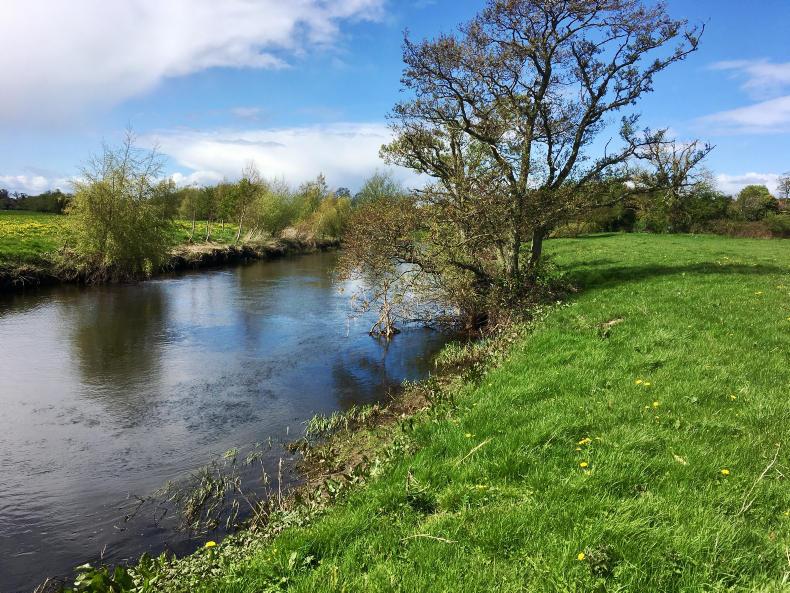The model currently used to calculate the level of payments that farmers receive for carrying out environmental measures may need to be revised to be more financially lucrative, a conservation charity has said.
Speaking at an event at Balmoral Show last week, John Martin from RSPB said that plans are in place to commission a research project to calculate the costs of a new land management policy after Brexit.
At present, environmental payments are currently based on costs incurred and income foregone by the farmer, and do not provide an additional financial incentive to join schemes. “We think in the future that model might be defunct because it might not actually pay those smaller farmers to be on the land,” Martin said.
He was speaking at an event organised by Nature Matters NI, an umbrella group of conservation organisations that is lobbying the UK government to deliver its promise of a green Brexit. “We would like to see funding maintained at the current level for at least ten years as we transition away from the European Union,” Martin said at the event.
Future support
Nature Matters NI shares Defra secretary Michael Gove’s view that future farm support payments should be based on “public money for public goods” after Brexit.
Martin said that food production is not defined as a public good as food can be sold. However, he said that food security, in terms of protecting the productive capacity of land, is a public good.
“We think that farmers will continue to have a critical role in providing safe and sustainable supplies of food, but they will also play a crucial part in improving biodiversity and protecting natural resources,” he said.
Farmers sidelined in policy think-tank
Sources in the industry have expressed concern at the lack of active farmer representatives on a panel conducting an inquiry into the future for rural areas across NI and Britain.
Set up by the Royal Society for the encouragement of Arts, Manufactures and Commerce (RSA), the Food, Farming and Countryside Commission (FFCC) is a two-year project which aims to help inform future Government policy. It is to publish a final report in March 2019.
According to the FFCC, its goal is a safe and secure food and farming system, a flourishing rural economy and a sustainable, and accessible, countryside. Each devolved region of the UK is conducting its own inquiry, and in NI it is under the chairmanship of Patrick Casement, who is also the chair of the umbrella body for environmental based organisations, NI Environment Link.
Other members of the FFCC panel in NI include representatives from the National Trust, Ulster Wildlife and Nature Matters. They are joined by Professor Nigel Scollan from Queen’s University, Joe McDonald from Asda, and Devenish agriculture director, John Gilliland. There are no representatives from the farm lobby organisations in NI.
Read more
Listen: farmers will not be park keepers after Brexit
Green lobby outlines case for farm support post-Brexit
The model currently used to calculate the level of payments that farmers receive for carrying out environmental measures may need to be revised to be more financially lucrative, a conservation charity has said.
Speaking at an event at Balmoral Show last week, John Martin from RSPB said that plans are in place to commission a research project to calculate the costs of a new land management policy after Brexit.
At present, environmental payments are currently based on costs incurred and income foregone by the farmer, and do not provide an additional financial incentive to join schemes. “We think in the future that model might be defunct because it might not actually pay those smaller farmers to be on the land,” Martin said.
He was speaking at an event organised by Nature Matters NI, an umbrella group of conservation organisations that is lobbying the UK government to deliver its promise of a green Brexit. “We would like to see funding maintained at the current level for at least ten years as we transition away from the European Union,” Martin said at the event.
Future support
Nature Matters NI shares Defra secretary Michael Gove’s view that future farm support payments should be based on “public money for public goods” after Brexit.
Martin said that food production is not defined as a public good as food can be sold. However, he said that food security, in terms of protecting the productive capacity of land, is a public good.
“We think that farmers will continue to have a critical role in providing safe and sustainable supplies of food, but they will also play a crucial part in improving biodiversity and protecting natural resources,” he said.
Farmers sidelined in policy think-tank
Sources in the industry have expressed concern at the lack of active farmer representatives on a panel conducting an inquiry into the future for rural areas across NI and Britain.
Set up by the Royal Society for the encouragement of Arts, Manufactures and Commerce (RSA), the Food, Farming and Countryside Commission (FFCC) is a two-year project which aims to help inform future Government policy. It is to publish a final report in March 2019.
According to the FFCC, its goal is a safe and secure food and farming system, a flourishing rural economy and a sustainable, and accessible, countryside. Each devolved region of the UK is conducting its own inquiry, and in NI it is under the chairmanship of Patrick Casement, who is also the chair of the umbrella body for environmental based organisations, NI Environment Link.
Other members of the FFCC panel in NI include representatives from the National Trust, Ulster Wildlife and Nature Matters. They are joined by Professor Nigel Scollan from Queen’s University, Joe McDonald from Asda, and Devenish agriculture director, John Gilliland. There are no representatives from the farm lobby organisations in NI.
Read more
Listen: farmers will not be park keepers after Brexit
Green lobby outlines case for farm support post-Brexit






 This is a subscriber-only article
This is a subscriber-only article










SHARING OPTIONS: